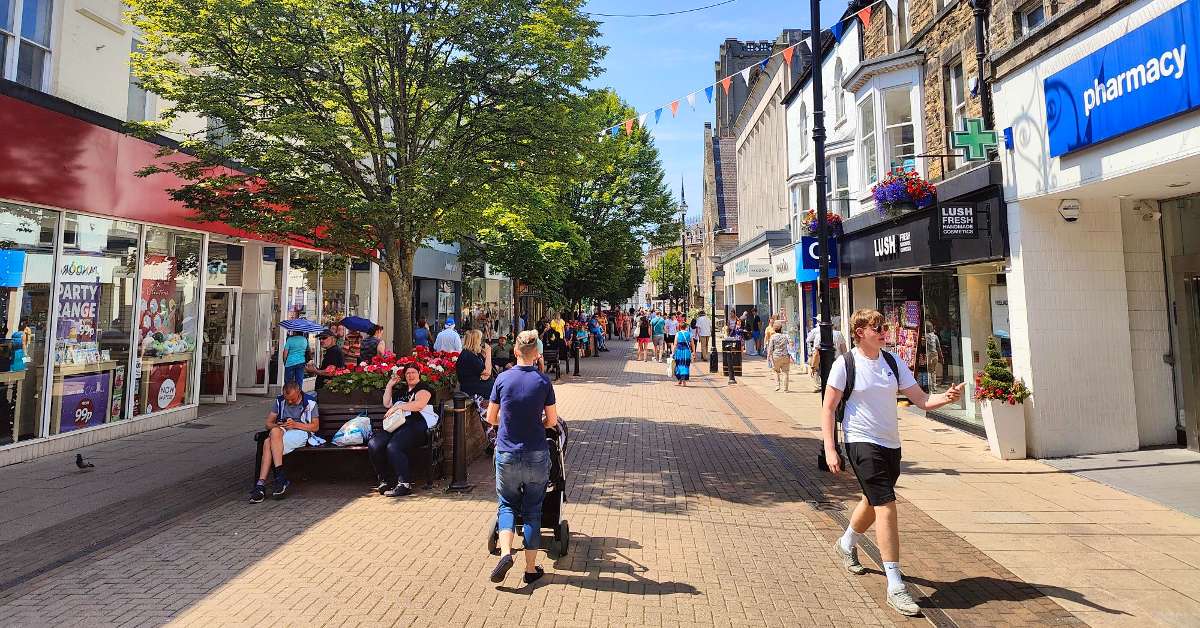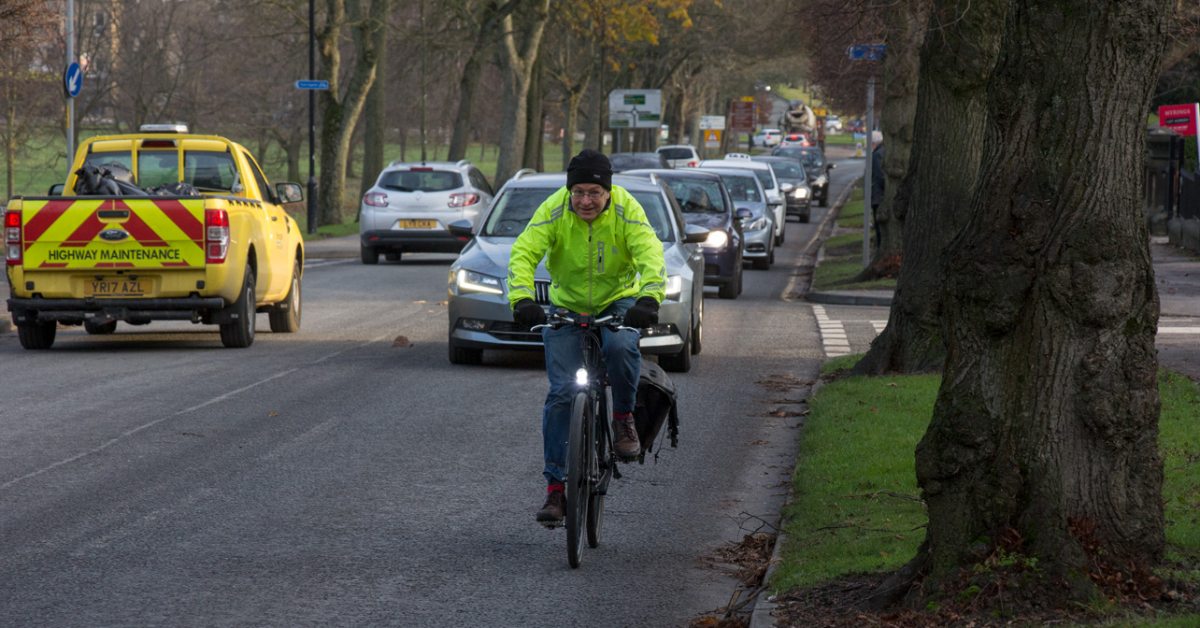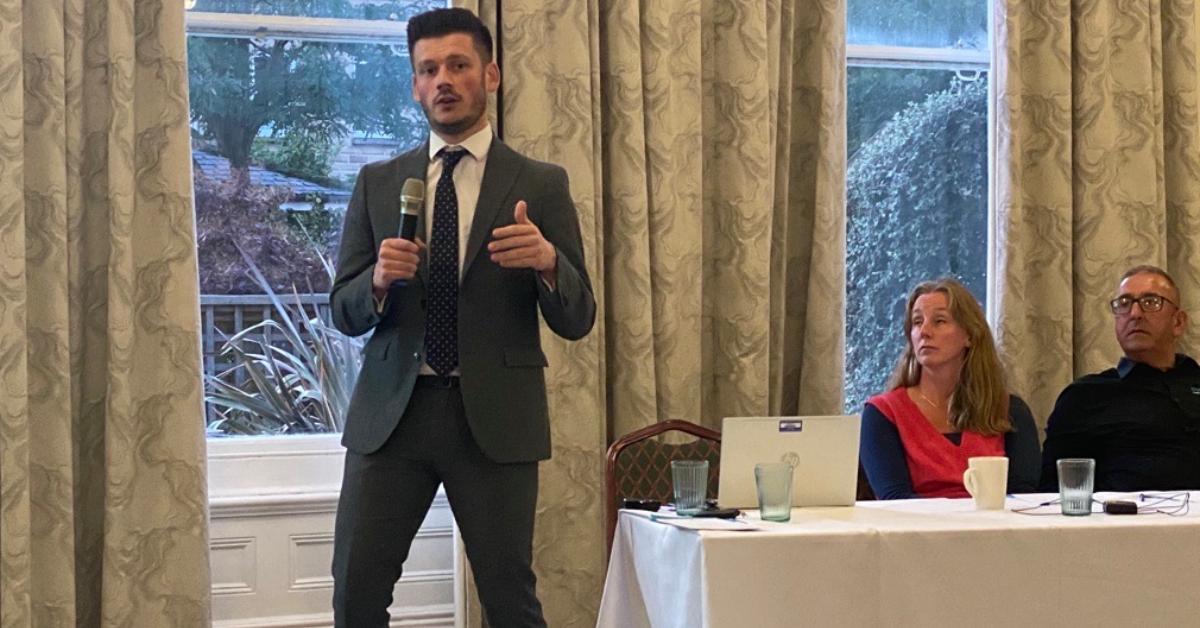The councillor in charge of transport in North Yorkshire has claimed inflation will not lead to cheaper materials being used in the £11.2 million Harrogate Station Gateway scheme.
Cllr Keane Duncan, executive member for highways and transportation at North Yorkshire County Council, told Harrogate district businesses last night the scheme would not be “compromised”.
David Simister, chief executive of Harrogate District Chamber of Commerce, told the organisation’s monthly meeting that Harrogate was a “premier town” and “the last thing we want is for the town centre to be cheapened”.
Mr Simister said he would prefer to see any town centre investment spent on improving Cambridge Street and Oxford Street rather than on the gateway project, which would pedestrianise part of James Street and reduce traffic on a stretch of Station Parade to single lane to encourage walking and cycling.

Cambridge Street – in need of investment?
He asked Cllr Duncan if he could guarantee the gateway would be a high quality project. Cllr Duncan replied:
“At the moment there hasn’t been any discussion around compromising the scheme.
“If there are inflationary pressures we will have to look at what we can do around those costings. Does the council look at contributing to any shortfall? That’s not anything we have discussed at this time.”
Read more:
- Harrogate traffic to be counted for £11.2m Station Gateway
- On demand Yorbus sees over 13,000 trips in first year
Cllr Duncan added all local authorities faced inflationary measures that required “tough decisions” but added:
“The last thing I want to see happen is compromise on the public realm because that is an important part of the scheme.”
Cllr Duncan told the meeting the third round of gateway consultation had now ended and if, as expected, councillors decide to proceed, work is likely to start next year.
Encouraging active travel
He also told the chamber meeting, which focused on carbon reduction, that “how people shop and get around” was a key part of the council’s plan to be carbon net zero by 2034 and carbon negative by 2040.
Cllr Duncan, who lives in Malton, said there were four strands to achieving this. They were: fleet and logistics; shifting to low carbon vehicles; decarbonising public transport and increasing active travel by encouraging more people to walk distances of up to 2km and cycle distances of up to 8km rather than drive.

Encouraging cycling is a council priority. Photo: Hedgehog Cycling
Responding to a question by a chamber member that the council’s aim to double the use of public transport seemed completely at odds with what is happening, Cllr Duncan agreed the number of bus routes had decreased over the last 20 years, adding:
“We are now at a critical time. Passenger numbers are now at 80% pre-pandemic levels.
“A number of routes that were previously commercially viable are now essentially at a cliff edge situation.”
He said the council was therefore “trying to do things differently”, for instance by introducing the on-demand minibus service for rural areas YorBus, which covers Ripon, Masham and Bedale.
Last night’s chamber meeting at the Cedar Court Hotel in Harrogate also heard carbon reduction-themed talks from Paul White, a procurement specialist at Auditel, Sarah Jones, the founder of Full Circle Funerals and from Danny Wild and Mike Kay from Harrogate District Climate Change Coalition.





